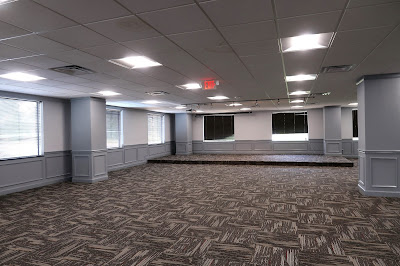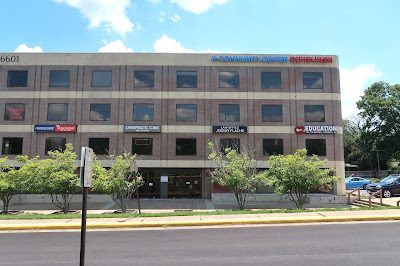Construction completed on Annandale’s Korean Community Center
 |
| The largest meeting room in the new Korean Community Center. |
The new Korean Community Center in Annandale offers several spaces for meetings and events for the community
at large, not just Korean Americans.
The center occupies the entire second floor of an office building at 6601 Little River Turnpike.
The largest room is 3,000 square feet and can hold up to 300 people. There are also some smaller rooms that can be used for classes, seminars,or offices and a kitchenette.
Related story: Korean Community Center to be based in Annandale
The second floor has been totally remodeled and consolidated, with new walls, carpeting, and wiring, says Steve Lee, president of the Korean American Association of Greater Washington (KAGW). The association spearheaded this project because “we wanted to give back to the community,” he said. That’s why the space will be available for everyone to use.
The center is operated by a separate organization called Korean Community Center Inc., which purchased the building in December 2019. That organization plans to hire staff to handle day-to-day administration.
Tenants that had occupied the second floor, including C2 Education, moved to other floors. Rents from the other building tenants will support the center’s operating costs. Eventually, the center could expand to
the fourth floor.
The effort to create a Korean Community Center started with former chair of the Board of Supervisors Sharon Bulova nine years ago and continues to have support from current chair Jeff McKay.
Related story: Fundraising campaign launched for Korean Community Center
Eventually, Lee hopes the center could be modeled on the Pozez Northern Virginia Jewish Community Center in Fairfax, which has many activities and program that serve the general population.
Funding for the Korean Community Center came from Fairfax County’s overflow fund ($500,000), the Korean government ($500,000), and donations from individuals ($1 million), including eight members of the KAGW board who each donated $100,000 or more.


